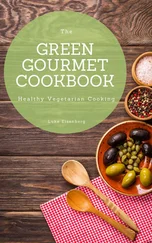Eating Well With Baby Belly:
Healthy Eating While Pregnant
(Pregnancy Nutrition Guide)
Reproduction, translation, further processing or similar actions for commercial purposes as well as resale or other publications are not permitted without the written consent of the author.
Copyright © 2018 - Luke Eisenberg
All rights reserved.
The optimal nutrition for a healthy development of the child in the womb and during the first months of life The optimal nutrition for a healthy development of the child in the womb and during the first months of life Everyone should by now be aware that a balanced and nutritious diet is important for a healthy body. In the case of pregnant women, a balanced, healthy and varied diet is even a prerequisite for an optimal pregnancy and the birth of a healthy child. According to studies, around 94 percent of children are born healthy in a healthy diet, and only eight percent in an unhealthy lifestyle. However, care should also be taken after birth to ensure that the baby receives adequate care. It is important to have a sufficient supply of vitamins, trace elements and minerals. Folic acid, iron, iodine and vitamin D in particular are often not sufficiently ingested by the diet, and it may be advisable to take additional preparations to counteract pregnancy complications at an early stage. The role of nutrition during breastfeeding is much more underestimated. The calorie intake should be higher than during pregnancy, the supply of nutrients should be ensured and a sufficient amount of drinking should be ensured. Even if many women want to lose weight again after pregnancy, a strict diet can lead to undesirable developments of the child. In fact, this seems logical, as the infant is cared for exclusively by the mother, even after birth. In general, however, the guidelines for proper nutrition during pregnancy and breastfeeding are only slightly different from those for non-pregnant women. In principle, everyone should take care to be supplied with enough nutrients to provide their organism with the best conditions for a healthy life. So don't worry that you will have to change your diet completely if you are already eating relatively balanced. Only for high-risk groups such as very overweight or underweight, women with chronic illnesses, girls in puberty or those giving birth late can the conversion become more difficult and should be discussed with you in any case by a gynecologist, ideally in combination with a dietician or nutritionist. The following guide is only a first orientation. First, the calorie requirement and weight gain during pregnancy are discussed. Thereupon, individual nutrients are presented which are particularly needed during pregnancy as well as foods which should usually be avoided due to a risk of infection. Here are some explanations on nutrition during breastfeeding. Here, too, the main focus is on the calorie and nutrient requirements before the disadvantages of heavy weight loss are highlighted. In addition, another chapter will highlight some aspects of a vegetarian or vegan diet during pregnancy. A vegetarian diet does not necessarily have to be harmful for mother and child, but can be successful with a certain planning and a well thought-out selection of products.
Calorie requirement during pregnancy Calorie requirement during pregnancy Contrary to popular belief, pregnant women should not "eat for two". This can even be counterproductive, especially in the first trimester of pregnancy, which means that an increase in the number of calories can be dispensed with completely within the first three months. However, you should not consume less, as otherwise the risk of miscarriage or developmental defects of the child increases significantly. In the second and third trimester, however, calorie intake should be increased slightly. For an averagely heavy woman with a BMI in the normal range, an increase of about 250 calories from the third to the sixth month and an increase of about 500 calories from the sixth to the ninth month is recommended, which is between 2500 and 2700 calories daily. So they don't "eat for two", but for one and a fifth or quarter.
Weight gain during pregnancy Weight gain during pregnancy Weight gain during pregnancy is often a tiresome issue for women. From eight to eighteen kilograms, an increase in weight due to pregnancy is regarded as completely normal, but must always be seen in relation to the female's physical constitution. While in very slim women, a higher increase in weight than normal is considered to be normal, the limit for very overweight women is nine kilograms more on the scales. Naturally, there are completely different limits for multiple pregnancies. The Institute of Medicine (IOM) recommends the following increases depending on the Body-mass-Index: BMI weight gain <20 12,5 – 18,0 kg 20 - 26 11,5 – 16,0 kg 26 - 29 7,0 – 11,5 kg >29 5,0 – 9,0 kg Weight gain should be continuous over time and follows a pattern in almost all cases. Thus, the increase up to the tenth week with about 100 grams per week is rather low. Only from the 14th week on, a sudden increase of the scale can be observed, which should amount to about 400 grams per week. Towards the middle of your pregnancy, you should have gained at least five kilograms in order to be able to guarantee the child's care. In women with underweight or overweight, the limits are shifting individually. In addition, rapid weight gains of one kilogram or more per week are often a sign of pregnancy complications and should be examined by a doctor as soon as possible. This can be explained by the changed metabolic situation and the adjustment of the body to the child. In the first half of the pregnancy, maternal tissue is increasingly formed. These two to three additional kilos of fatty tissue serve as energy storage during the child's growth and also prepare him/her for the increased calorie requirement during the breastfeeding period. It is only after this time that the weight gain occurs due to the growth of the child. In total, the mother weighs about six kilograms of the weight gained and the child with placenta and amniotic fluid about five kilograms.
Hydration during pregnancy Hydration during pregnancy The fluid intake during pregnancy should be slightly higher than usual. While non-pregnant women should consume about 1.5 litres of fluid per day, it is about one more litre during pregnancy. However, these 2.5 litres do not only refer to the amount of water consumed, but also include the water contained in the food. The reason for the increased amount of fluid is the increase in blood volume, especially after the second trimester of pregnancy. In the third trimester, you will not only supply yourself but also your almost fully trained child with fluid.
Increased protein requirement for pregnant women Increased protein requirement for pregnant women Protein is the most important macro-nutrient for the body structure of the child. To ensure growth, the body of a pregnant woman needs a little more protein than usual. Whereas the regular protein requirement is 0.8 grams per kilogram of body weight, an increase of 15 grams per day is recommended, especially from the second trimester of pregnancy onwards. Although animal protein can be utilized better by the body than vegetable protein, an excessive intake of animal protein can have negative consequences for mother and child due to the high fat content. A combination of both protein types is ideal. Animal protein is mainly found in meat, fish, eggs and dairy products. Plant protein in significant amounts in pulses, wholemeal products, cereal flakes, nuts and seeds.
Vitamins, trace elements and minerals that are particularly important for mother and child
Artificial or natural food supplements
Читать дальше












